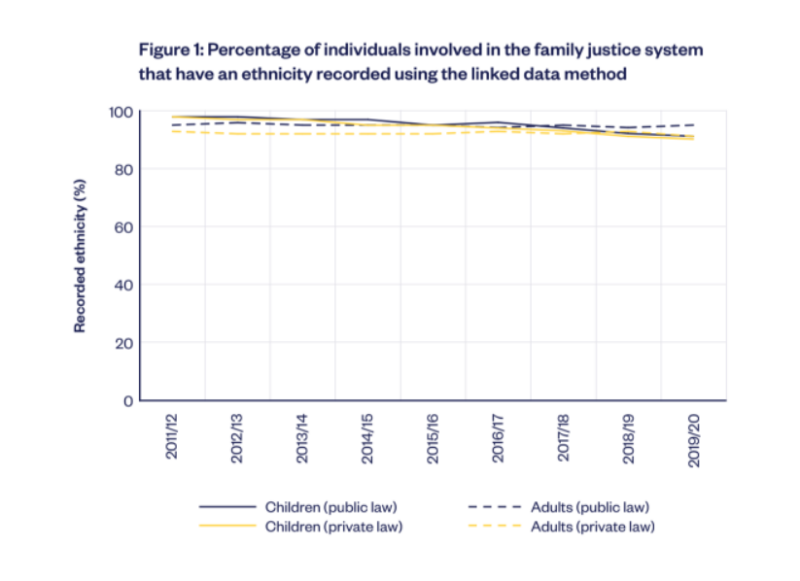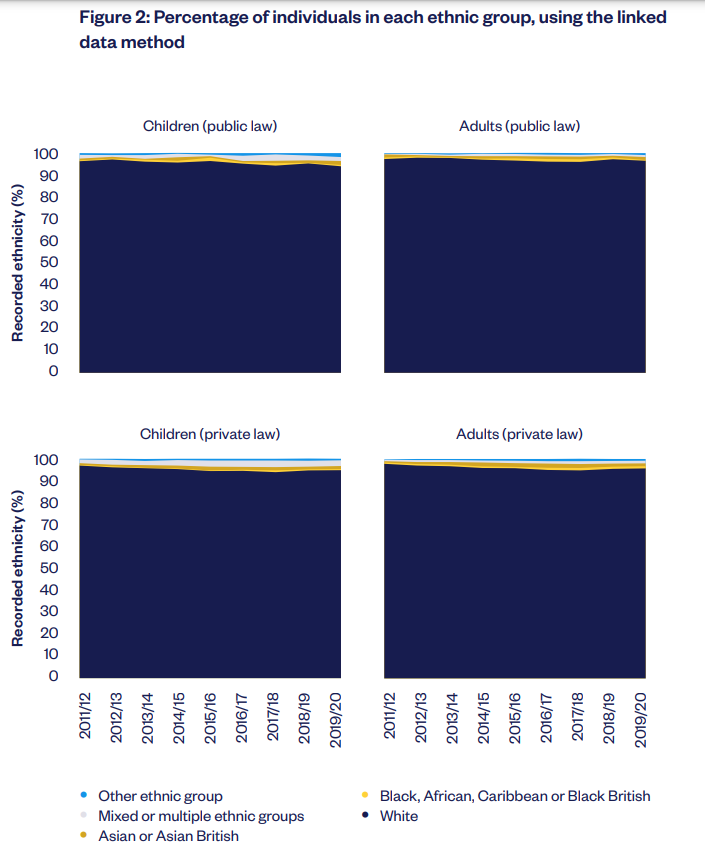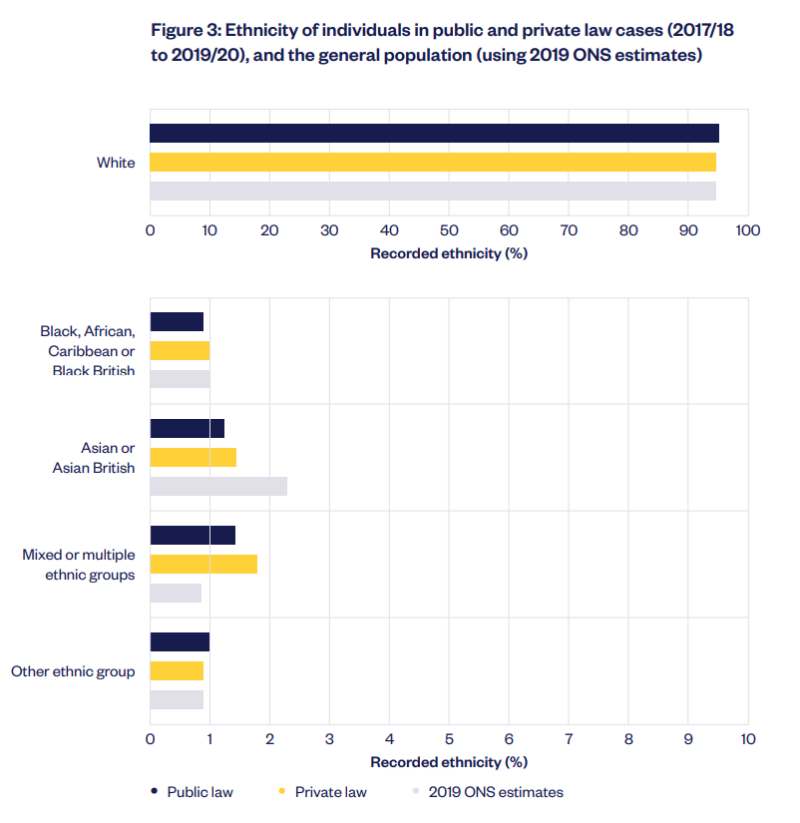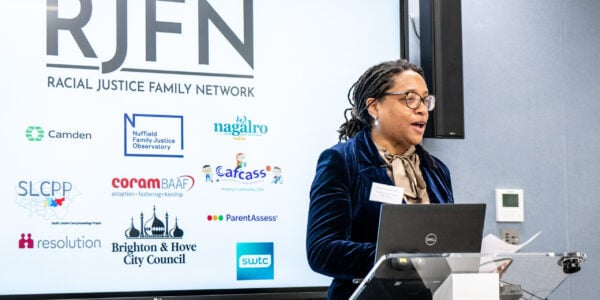-
 Family Justice Data Partnership
Family Justice Data Partnership -
 The Centre for Child and Family Justice Research
The Centre for Child and Family Justice Research -
 Population Data Science at Swansea University
Population Data Science at Swansea University -
 SAIL Databank
SAIL Databank -
 Lancaster University
Lancaster University -
 Swansea University Medical School
Swansea University Medical School
What do we know about ethnic diversity in the family justice system in Wales?
Authors & Organisations
Dr Laura North: Swansea University
Ashley Akbari: Swansea University
Dr Laura Cowley: Swansea University
Dr Bachar Alrouh: Lancaster University
Dr Claire Hargreaves: Lancaster University
Dr Linda Cusworth: Lancaster University
Professor Karen Broadhurst: Lancaster University
Dr Ian Farr: Swansea University
Dr Steffi Doebler: Lancaster University
Dr Mariam Abouelenin: Lancaster University
Jonathan Smart: Swansea University
Professor David Ford: Swansea University
Dr Lucy J Griffiths: Swansea University
Ashley Akbari: Swansea University
Dr Laura Cowley: Swansea University
Dr Bachar Alrouh: Lancaster University
Dr Claire Hargreaves: Lancaster University
Dr Linda Cusworth: Lancaster University
Professor Karen Broadhurst: Lancaster University
Dr Ian Farr: Swansea University
Dr Steffi Doebler: Lancaster University
Dr Mariam Abouelenin: Lancaster University
Jonathan Smart: Swansea University
Professor David Ford: Swansea University
Dr Lucy J Griffiths: Swansea University
Authors
Dr Laura North
Ashley Akbari
Dr Laura Cowley
Dr Bachar Alrouh
Dr Claire Hargreaves
Dr Linda Cusworth
Professor Karen Broadhurst
Dr Ian Farr
Dr Steffi Doebler
Dr Mariam Abouelenin
Jonathan Smart
Professor David Ford
Dr Lucy J Griffiths
Ashley Akbari
Dr Laura Cowley
Dr Bachar Alrouh
Dr Claire Hargreaves
Dr Linda Cusworth
Professor Karen Broadhurst
Dr Ian Farr
Dr Steffi Doebler
Dr Mariam Abouelenin
Jonathan Smart
Professor David Ford
Dr Lucy J Griffiths
Organisations
Swansea University
Swansea University
Swansea University
Lancaster University
Lancaster University
Lancaster University
Lancaster University
Swansea University
Lancaster University
Lancaster University
Swansea University
Swansea University
Swansea University
Swansea University
Swansea University
Lancaster University
Lancaster University
Lancaster University
Lancaster University
Swansea University
Lancaster University
Lancaster University
Swansea University
Swansea University
Swansea University
This report was written in partnership with
Downloads









